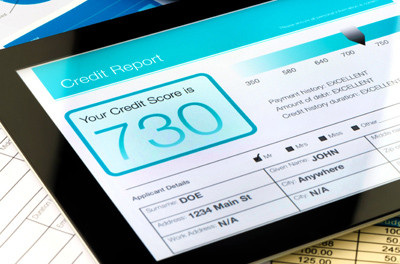If finance isn’t your specialty, reading your credit report can seem a little intimidating. Especially for those whose credit histories might have had a few bumps in the road, it may seem easier just to ignore the report rather than trying to learn from it.
We’re here to tell you that not only do you need to read your credit report every year, but that it’s also much simpler to understand than you might think.
Let’s start with the basics:
Where Can You Get a Free Credit Report?
You can download your free report from annualcreditreport.com, which will include all three major credit bureaus: Experian, TransUnion, and Equifax.
What Is the Purpose of a Credit Report?
Credit reports represent your creditworthiness as an individual. The credit bureaus boil down several factors into a single number. Personal credit scores typically range from 300-850, with 850 representing the best possible credit, and below 620 representing poor to bad credit.
How Do Credit Scores Affect Real Life?
Good credit scores translate not only into better rates on loans — think purchasing a house or car — but they can also have an effect on employment and renting homes. If you have a bad credit score, you are more likely to pay a higher interest rate, which will effectively take money you could have otherwise saved out of your pocket.
Understanding Your Credit Report
Credit reports are divided into these main sections:
- Personal Information (name, birthday, social security number, etc.)
- Public Record Information (any unresolved legal issues, like bankruptcies)
- Creditor Information (all of your lines of credit and current information about them)
- Adverse accounts, potentially negative items (items that lower your credit score)
- Accounts in good standing, satisfactory accounts (accounts that have no issues)
- Credit Inquiries (information about people who’ve researched your credit)
You may see certain credit-specific terminology on your report. Here are a few key items to look out for:
“Collection Agencies” are 3rd party companies that attempt to collect on past due debt that has been charged off or severely delinquent.
“Charged Off” refers to revolving or installment accounts being written off to profit and loss, this does not mean that money is not owed — it simply changes the creditor’s accounting status of the account. Accounts are classified as “charged off” when payments have not been reported for up to 180 days.
“Foreclosure” is reported on a credit report if a bank has repossessed real property (real estate) due to reporting lack of payments.
“· Foreclosure: A foreclosure is reported on a credit report if a bank has repossessed real property (real estate) due to reporting lack of payments.
“Public Record”: The PUBLIC RECORD INFORMATION section lists publicly available information about legal matters affecting credit. These public records may include judgments in civil actions, state federal or local tax liens, and/or bankruptcies. You can identify Judgments in their own section located on a credit report.
“Inquiries”: This section represents organizations such as a bank, retail stores, potential creditors, insurance company, or employer’s requests for a copy of the report.
“Installment accounts” refers to loans you’ve taken out that are of a set borrowed amount and are to be repaid over time with a set number of scheduled payments; normally at least two payments are made towards the loan. The term of loan may be as little as a few months and as long as 30 years.
“Revolving accounts” are a type of credit that does not have a fixed number of payments, in contrast to installment credit. Credit cards are an example of revolving credit used by consumers. It is basically an arrangement that allows for the loan amount to be withdrawn, repaid, and redrawn again in any manner and any number of times, until the arrangement expires.
Perhaps the most significant portion of credit reports is the numeric credit score. Here’s the breakdown:
760+ Excellent credit score
700 – 760: Good credit score
640 – 700: Average
600 – 640: Fair
599 and below: Bad
What To Do If You Have Concerns About Your Credit Report
If you see inaccuracies on your credit report, it’s imperative to resolve them as quickly as possible. Letting mistakes stay on your credit report can make a big negative impact on your credit score, which in turn cost you money. The best way to dispute items on your credit report? Mail the credit bureau a letter the old-fashioned way. Need help knowing what to write in your letter? We can help.
Set aside a little time to get familiar with your credit report if you’re new to reviewing it every year. If you have questions or concerns that you can’t answer by yourself, give us a call. As experts in credit, we can help clarify your report for you and set you on the right path for improving your credit score.
Have you downloaded your free annual report yet? We hope that you do it today so you can take charge of your financial well-being starting now.



[…] Read the whole article here. […]